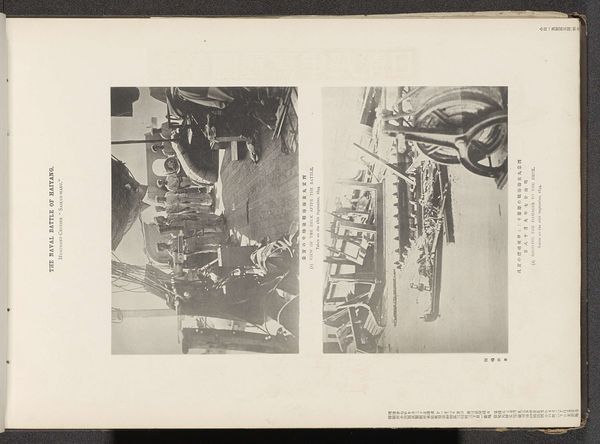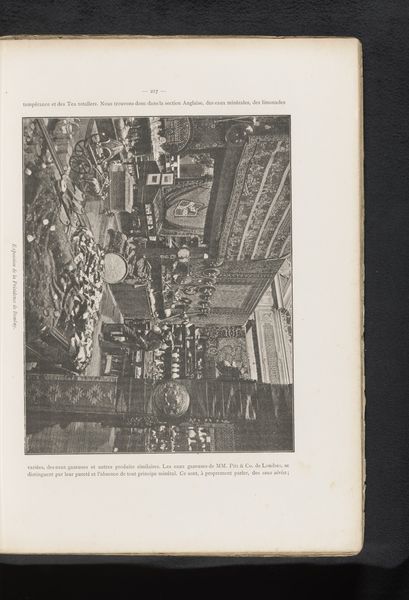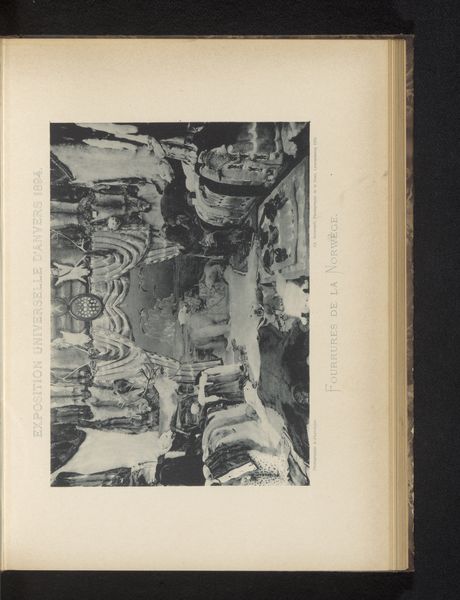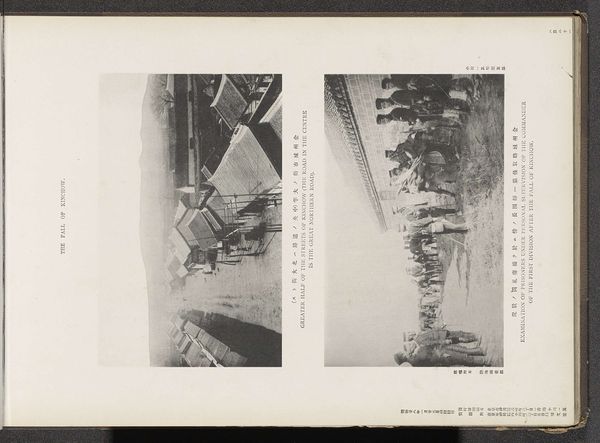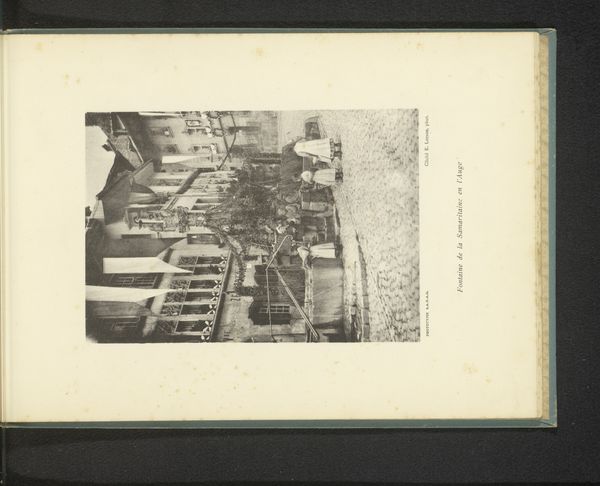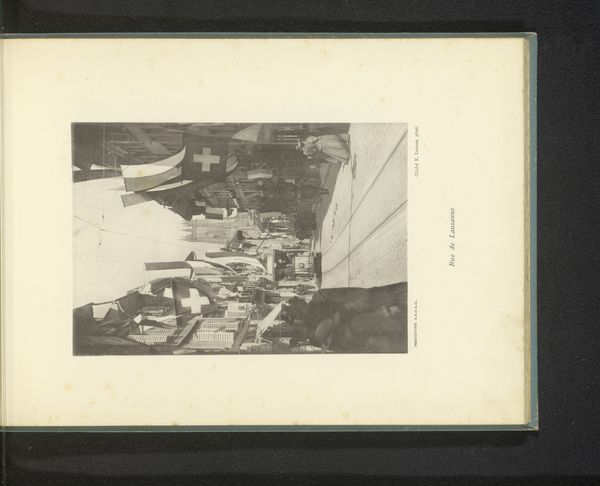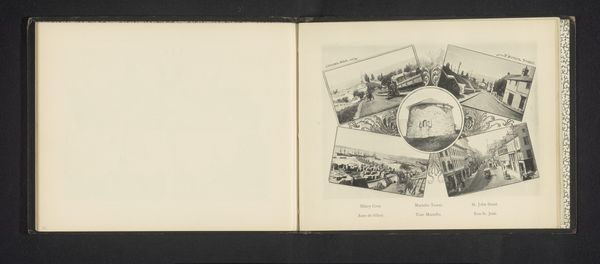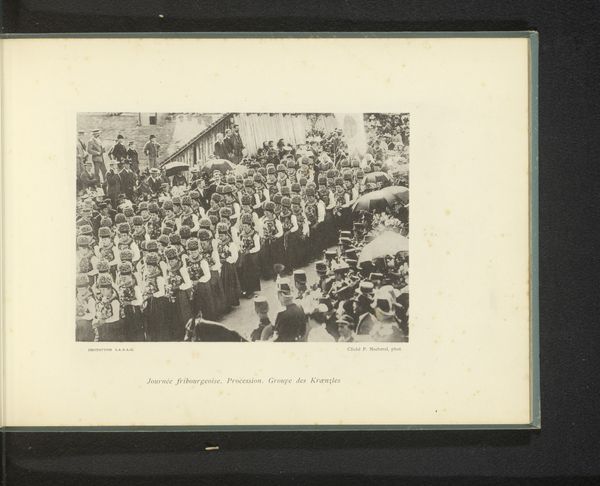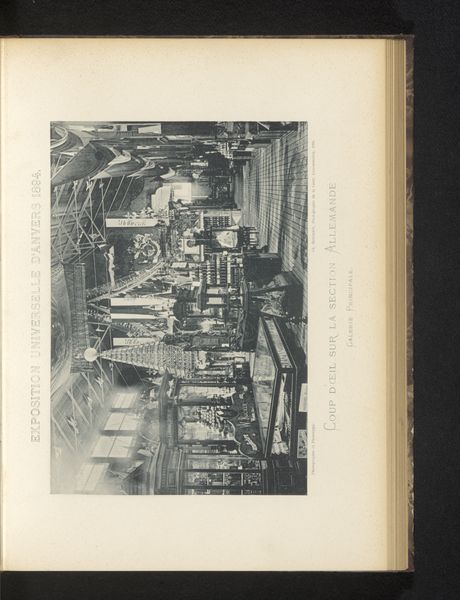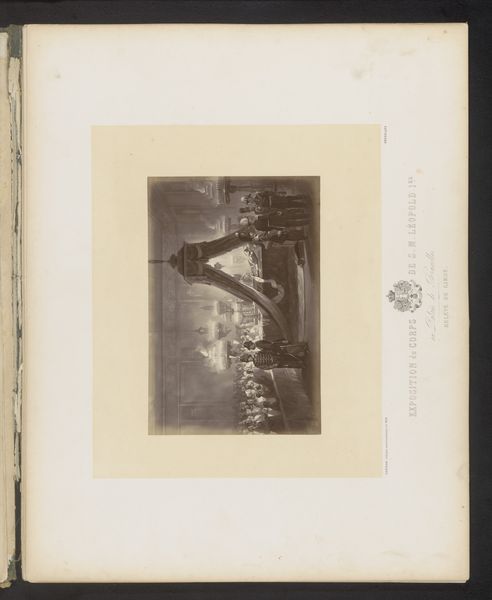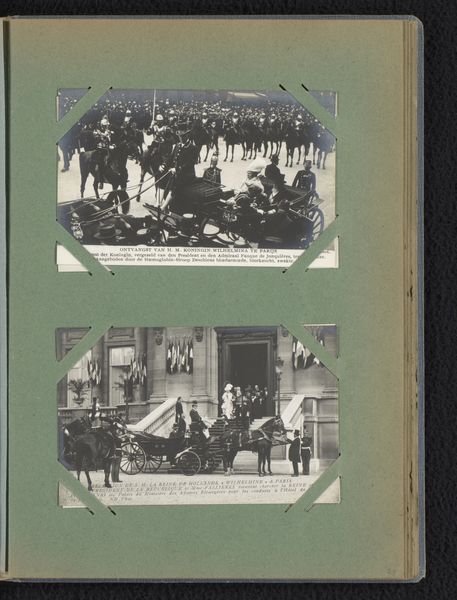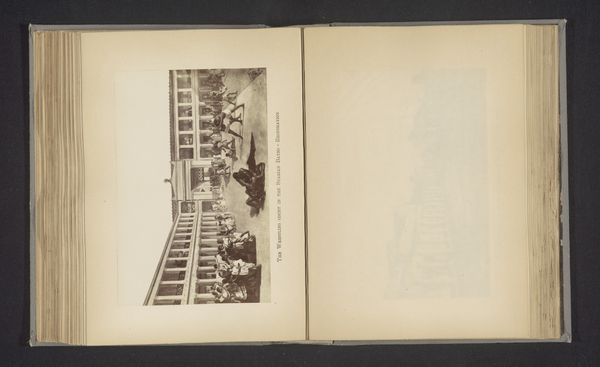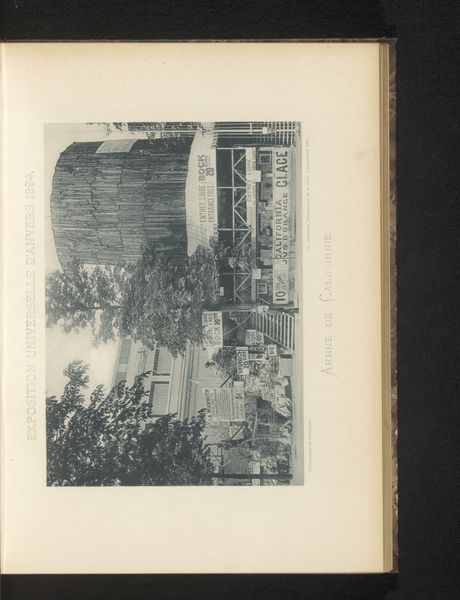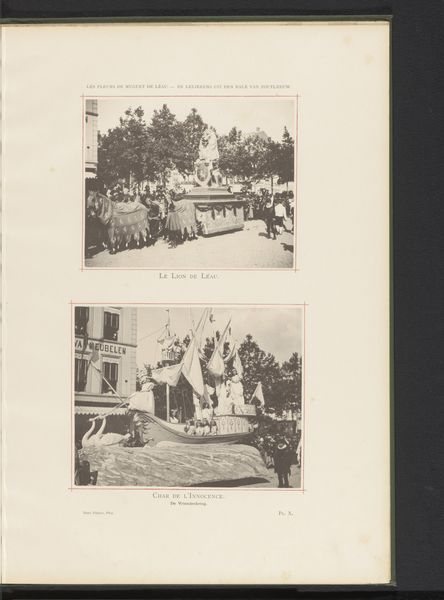
print, photography, gelatin-silver-print
#
portrait
#
ink paper printed
# print
#
photography
#
photojournalism
#
gelatin-silver-print
Dimensions: height 426 mm, width 195 mm
Copyright: Rijks Museum: Open Domain
Curator: Let’s look at this intriguing photo titled "Chinese krijgsgevangenen te Pyongyang," placing the work to be made before 1899, probably printed on gelatin-silver print. What’s your first reaction? Editor: My initial feeling is subdued. The tones are incredibly soft for such a stark subject, as the scenes speak about photojournalism during the war, specifically capturing scenes with war prisoners, while the printing makes the entire arrangement subdued. I want to know about the making, labor, and social meaning. Curator: Looking at the visual language, the photograph reveals much about cultural perception during the time. Grouped subjects and treatment create a story arc that makes a cultural impact on how conflict can be perceived. The prisoners being presented gives me an almost staged feeling with psychological elements. Editor: It's interesting you say that. I look closer at the images on this page spread. One showing many people aligned like livestock waiting to be handled, juxtaposed with the visual story about healthcare. I find that there's a real relationship with production and power presented through this photojournalistic approach. What is visible about material culture within an archive that continues this perpetuation? Curator: Those are valid points that also bring in more dimensions to how materials and setting give more perspective. Perhaps we need to be reminded that some symbols' meanings will persist and permeate, especially in images like this where we get to analyze the meaning it represents to its modern audience. Editor: It makes one really contemplate the layers upon layers, from photographic paper production, to photographic depiction, to social power, and to contemporary audience's relationship and access. It goes well beyond a single artistic creator. Curator: True indeed. Each new context further colors the image, and understanding this constant dialogue, both conscious and unconscious, is what I think is imperative. Editor: Yes, context keeps everything honest to reveal processes that expose how a world works.
Comments
No comments
Be the first to comment and join the conversation on the ultimate creative platform.
